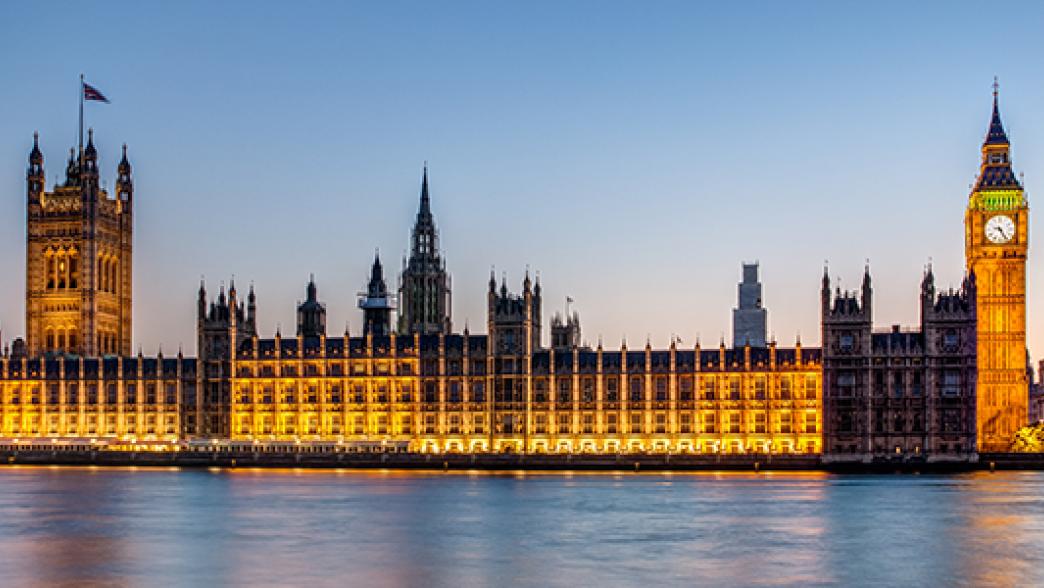Payroll vote
The 'payroll vote' is the body of MPs who hold offices that require them to support the government.

What is the payroll vote?
The 'payroll vote' is the body of MPs who hold offices that require them to support the government. These MPs are bound by collective responsibility and would be expected to resign before opposing the government. They may hold either paid or unpaid positions, which can range across all levels of seniority.
The term has also been used more recently to describe a wider payroll vote: MPs who hold positions which do not formally bind them to support the government, but which nonetheless involve an expectation of loyalty.
Who is part of the payroll vote?
The traditional payroll vote is made up of ministers and parliamentary private secretaries. Collective responsibility binds these MPs, who are restricted from voting against the government, or even “associating themselves with recommendations critical of or embarrassing to the government”, by the ministerial code.
The wider payroll vote includes the traditional payroll vote and other non-ministerial officeholders. It is difficult to offer a comprehensive definition of this wider group, which includes all MPs whose positions involve an (implicit) expectation of loyalty to the government.
The wider payroll vote would include MPs who are Conservative Party vice-chairs, although no definitive list exists of the individuals who serve in these roles. It might also include at least some of those who serve as prime ministerial trade envoys. These envoys are unsalaried parliamentarians who promote the UK’s trade interests overseas. Of the 21 current trade envoys in the Commons, 17 are Conservatives. 10 GOV.UK, Prime Minister’s Trade Envoys, retrieved 5 December 2023, www.gov.uk/government/groups/trade-envoys
Some of these trade envoys have seen the role as binding them to support the government, while others have not. For instance, Rehman Chishti felt obliged to resign as trade envoy to Pakistan in order to vote against Theresa May’s Brexit agreement in November 2018, while Ranil Jayawardena – trade envoy to Sri Lanka – did not (but did resign as a parliamentary private secretary). None of three Labour MPs currently serving as trade envoys have felt obliged to support the government. This expectation of loyalty is, therefore, far looser than the requirements of collective responsibility faced by the traditional payroll vote.
How many MPs are in the payroll vote?
As of December 2023, the payroll vote consists of an estimated 150-160 MPs:
- 95 ministers (including whips) in the House of Commons
- 41 parliamentary private secretaries (as of November 2022, the last time the government published a list)
- 17 Conservative MP trade envoys
- an unknown number of party deputy or vice-chairs.
Are there any restrictions on the size of the payroll vote?
Only 95 ministers can sit in the House of Commons at any one time, while the number of paid ministers is limited to 109 (across both the House of Commons and the House of Lords). Since 2021, ministers are able to take paid maternity leave, with ministers on leave not counted towards these limits.
The number of parliamentary private secretaries is entirely unrestricted, as is the number of trade envoys and party chairs (which form part of the wider informal payroll vote). The Public Administration select committee warned in 2010 that this risked limiting parliament’s ability to scrutinise the government, recommending the payroll vote be limited to 15% of the membership of the Commons (98 MPs in a house with 650 members). 11 Public Administration Select Committee, Too Many Ministers?, March 2010, HC 457
A report written by the same committee the following year recommended that only secretaries of state should be allowed to have parliamentary private secretaries. 12 Public Administration Select Committee, Smaller Government What do ministers do?, March 2011, HC 530 In 2022, there were 41 PPSs – a figure that would be reduced to just 18 if this recommendation was adopted.
How has the payroll vote changed over time?
The traditional payroll vote grew steadily over the course of the 20th century, from 101 ministers and PPSs in the Commons in 1960 to 136 in December 2023.
The growth of the wider payroll vote has occurred more recently, particularly since Theresa May’s tenure as prime minister. She oversaw a threefold increase in the number of Conservative MPs in the House of Commons with trade envoy positions, without appointing a single non-Conservative trade envoy. She also expanded the number of MPs serving as vice-chairs.
- Keywords
- Parliamentary scrutiny
- Position
- Parliamentary private secretary
- Publisher
- Institute for Government